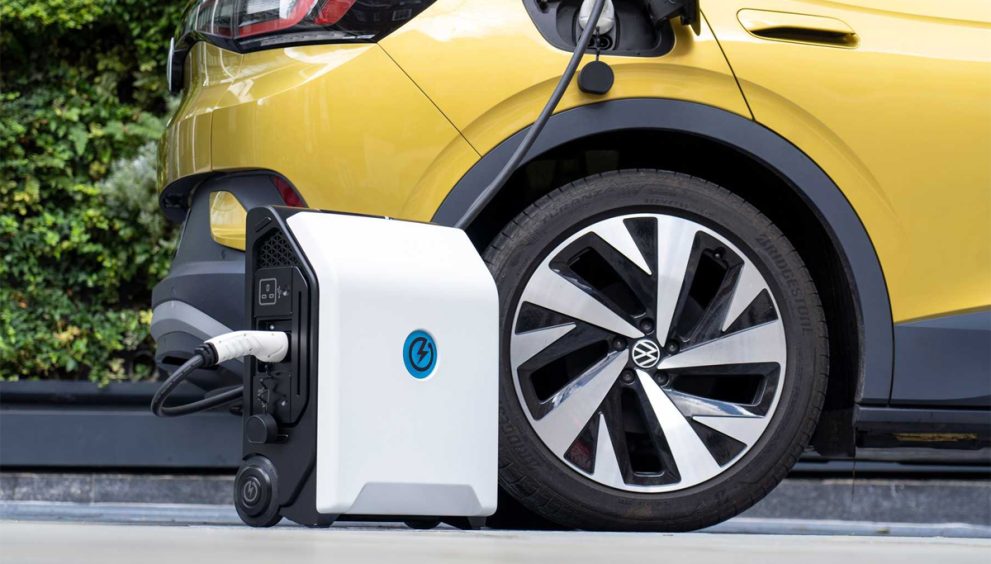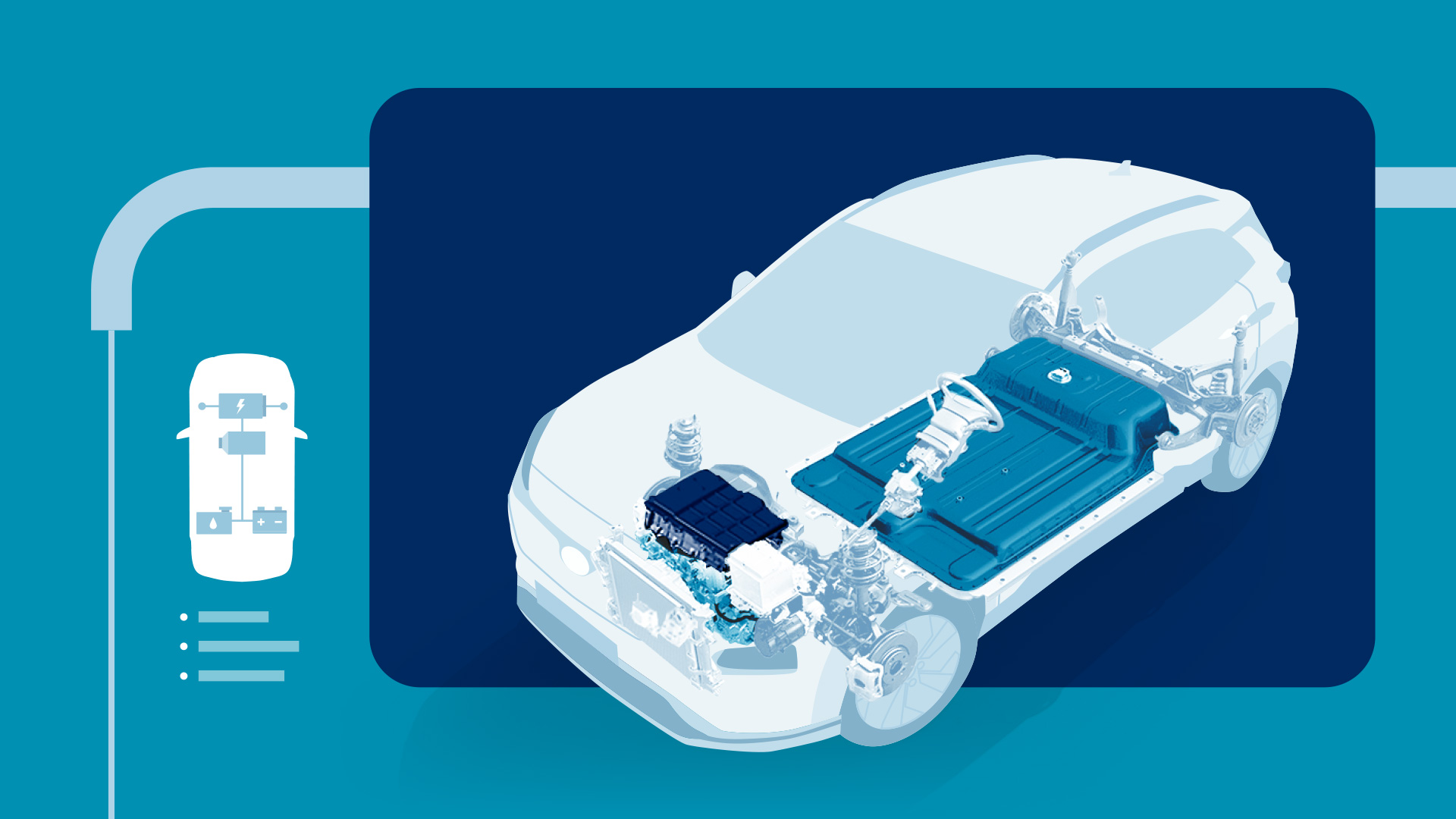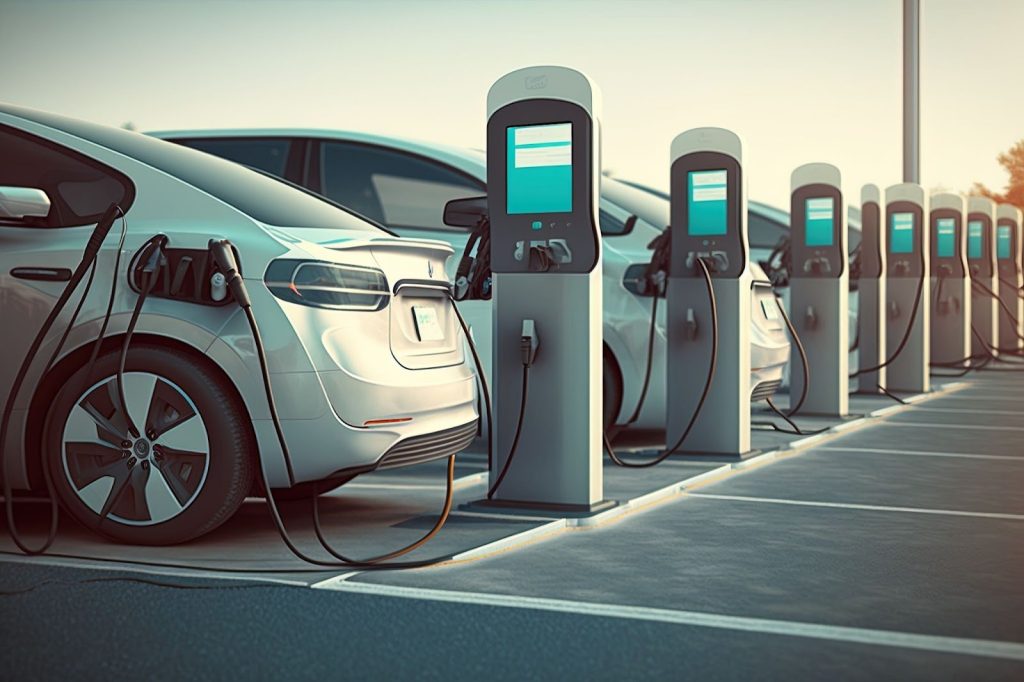Assessing the Cost of Electric Vehicles – Is the Cost of Using an Electric Vehicle Really Economical?

In today’s rapidly evolving automotive landscape, many consumers are pondering a crucial question: Is the cost of using an electric vehicle really economical? As traditional fuel prices rise and environmental concerns persist, understanding the financial implications of switching to electric vehicles (EVs) becomes increasingly important. In this article, we will explore various aspects of electric vehicle costs, including purchase price, maintenance, charging infrastructure, and potential government incentives.
Understanding the Initial Investment in Electric Vehicles
When considering whether the cost of using an electric vehicle really economical, one must first evaluate the initial investment involved. This is often where potential buyers hesitate, as electric vehicles generally come with a higher price tag compared to their gasoline counterparts.

Price Range and Model Variability
Electric vehicles boast a variety of models ranging from budget-friendly options to luxury brands.
- Budget-Friendly EVs: Many automakers have begun introducing more affordable electric models, allowing consumers to enter the market without breaking the bank.
- Luxury EVs: Luxury models offer high-end features and performance but at a premium price point.
Understanding the price range available can help consumers make informed decisions based on their economic circumstances. Even if the upfront cost is higher, the potential savings in fuel and maintenance can balance out expenditures over time.
Financing Options for Electric Vehicles
Financing is another vital aspect to consider when evaluating the affordability of electric vehicles.
- Loans and Leases: Traditional financing options like loans and leases are available for EVs, making them accessible to a broader audience.
- Government Incentives: Various governments offer rebates and tax credits that can significantly reduce the effective cost of an electric vehicle, making them more economically appealing.
It’s essential to research local and federal programs designed to incentivize the purchase of electric vehicles, which can aid buyers in their decision-making.
Total Cost of Ownership
To truly understand whether the cost of using an electric vehicle is economical, one must look beyond the sticker price and consider the total cost of ownership.
- Depreciation: Electric vehicles tend to depreciate differently than traditional cars. Research indicates that some EVs retain their value better than others in the long run.
- Insurance Costs: Insurance rates may vary based on model and region, so it’s crucial to factor in insurance costs while calculating the total expense.
By considering all these factors, consumers can make a well-rounded assessment of their potential investment in electric vehicles.
Evaluating Long-Term Savings: Fuel and Maintenance Costs

One of the most compelling arguments for transitioning to electric vehicles lies in the potential for long-term savings.
Charging Stations Versus Gas Stations
The convenience and cost-effectiveness of charging infrastructure is a critical consideration.
- Home Charging: Home charging solutions can significantly lower energy costs, especially if homeowners utilize off-peak electricity rates.
- Public Charging: Understanding the availability and pricing of public charging stations can impact overall expenses.
Compared to fluctuating gas prices, charging can prove to be a consistently cheaper option, especially with advancements in battery technology and charging speed.
Maintenance Costs Over Time
While assessing is the cost of using an electric vehicle really economical, it’s essential to take maintenance into account.
- Fewer Moving Parts: Electric vehicles typically require less maintenance than internal combustion engine vehicles due to fewer moving parts.
- Battery Lifespan: Monitoring the health and lifespan of the battery is vital. Many manufacturers provide warranties that cover battery life, often extending up to eight years or more.
Reduced maintenance costs can lead to significant savings over the lifetime of the vehicle, further enhancing its economic viability.
The Environmental Factor
While not a direct financial gain, the environmental benefits associated with electric vehicles can translate into long-term economic advantages.
- Decreased Carbon Footprint: EVs contribute to reduced emissions, aligning personal values with global sustainability efforts.
- Future Regulations: As governments push for cleaner energy sources, driving an electric vehicle may save owners from future taxes or fees associated with carbon emissions.
Being part of a larger movement toward sustainability can also enhance the appeal of electric vehicles for eco-conscious consumers.
Government Incentives and Subsidies: Making Electric Vehicles Economical

Government incentives play a pivotal role in shaping the economic landscape for electric vehicle users.
Federal and State Programs
Many countries and states offer various programs aimed at encouraging the adoption of electric vehicles.
- Tax Credits: Federal tax credits can considerably lower the purchase price of an electric vehicle, making it more financially accessible.
- State-Specific Incentives: Some states offer additional rebates or grants, which can stack on top of federal incentives for even greater savings.
Staying informed about current incentives is crucial for making economically sound choices regarding electric vehicle purchases.
Grants for Charging Infrastructure
Investing in home charging equipment can seem daunting, but various grants are available.
- Local Utility Incentives: Many utility companies provide incentive programs to encourage EV ownership, including rebates for installing home charging stations.
- Partnerships with Dealers: Some dealers collaborate with governments to facilitate access to infrastructure grants, providing a streamlined process for customers.
Leveraging available incentives can greatly reduce the financial burden of switching to electric vehicles.
Impact on Resale Value
As electric vehicle popularity surges, understanding the potential resale value becomes increasingly important.
- Market Demand: As more consumers transition to electric vehicles, demand for used EVs will likely increase, positively impacting resale value.
- Warranties and Battery Health: Many electric vehicle manufacturers offer warranties that cover battery health, providing added peace of mind for future resale.
Analyzing the future resale market can help potential buyers gauge the economic feasibility of investing in electric vehicles now versus later.
Conclusions on Economic Viability: Is the Cost of Using an Electric Vehicle Really Economical?
In conclusion, determining whether the cost of using an electric vehicle really economical requires a thorough understanding of multiple factors.
Electric vehicles present an opportunity for long-term savings through reduced fuel costs, lower maintenance expenses, and potential government incentives.
However, prospective buyers must also weigh the upfront costs and the dynamics of the electric vehicle market.
Overall, as technology advances and charging infrastructure improves, the economic case for electric vehicles will continue to strengthen, making them not only a sustainable choice but also an increasingly viable financial option.
FAQs
What are the main advantages of electric vehicles?
Electric vehicles have numerous benefits, including lower operating costs, reduced maintenance requirements, and a smaller carbon footprint compared to traditional gasoline-powered vehicles.
How do electric vehicle maintenance costs compare to gas vehicles?
Electric vehicles generally incur lower maintenance costs due to fewer moving parts and the absence of oil changes, resulting in substantial savings in the long run.
Are there incentives for buying electric vehicles?
Yes, many governments offer incentives such as tax credits, rebates, and grants that can substantially lower the effective purchase price of electric vehicles.
What is the average lifespan of an electric vehicle battery?
Most electric vehicle batteries are designed to last between eight to fifteen years, depending on usage and care, with warranties often covering battery health during this period.
Will electric vehicle resale values hold up in the future?
As electric vehicles become more popular, their resale values are expected to increase, particularly for well-maintained models from reputable manufacturers.
Conclusion
In summary, evaluating the economic viability of electric vehicles involves examining multiple factors, including purchase price, maintenance costs, government incentives, and long-term savings potential. Understanding these elements allows consumers to make informed decisions about adopting electric vehicles, ultimately answering the question: Is the cost of using an electric vehicle really economical? With ongoing developments in technology and a growing emphasis on sustainability, electric vehicles represent not just an environmentally friendly choice but also a financially savvy one.English language
Electric vehicles (EVs) are rapidly transforming the automotive landscape, and with their rise, deeper questions around economic viability emerge. But how does one navigate these considerations to arrive at a conclusion about whether the cost of using an electric vehicle really economical? Let’s explore this through various dimensions: from initial expenses to long-term financial implications, while also considering environmental ramifications that can translate into economic benefits.
Initial Purchase Costs
The upfront costs associated with purchasing an electric vehicle often cause potential buyers to hesitate before making the leap. Understanding these costs is essential for examining overall affordability in the long run.
Higher Vehicle Prices
One significant barrier for consumers is that electric vehicles usually come with a higher sticker price than their gasoline counterparts. This premium can deter many would-be purchasers, particularly those who are sensitive to upfront investment amounts.
However, it’s important to contextualize this when evaluating economic viability. While an EV may carry a higher initial price tag, the overall cost of ownership greatly diminishes over time. The reduced spending on fuel and maintenance, along with prospective resale value enhancements, reveals that the higher purchase price might be justified. Furthermore, as technology continues to evolve, we’ll likely see more affordable models entering the market, thus broadening accessibility.
Charging Equipment and Installation
Another factor that contributes to initial costs is the necessity for charging equipment. Many homeowners opt for home charging stations, which present additional expenditure – from the unit itself to installation.
Nevertheless, investing in home charging infrastructure can be financially prudent in the long term. By utilizing off-peak electricity rates for charging, homeowners can significantly lower energy costs. For instance, running an EV overnight typically corresponds to vastly cheaper rates compared to daytime prices. Thus, although the upfront investment in a charging system can seem daunting, it positions owners to reap substantial savings over time.
Financial Considerations for Leasing vs. Purchasing
Consumers also face a critical decision between leasing or purchasing an electric vehicle. While both options have merits, understanding how they impact costs is key to determining economic sensibility.
Leasing might offer lower monthly payments, making it easier for some individuals to afford an EV without the burden of a high purchase price. However, leased vehicles often come with mileage restrictions, which can deter users with extensive driving habits. Conversely, buying outright allows for complete ownership and the freedom to drive without limit, but at a potentially higher immediate financial burden.
Ultimately, the choice between leasing and purchasing boils down to an individual’s financial situation, usage requirements, and personal preferences, all integral elements in assessing whether committing to an electric vehicle is genuinely economical.
Long-Term Operating Costs
Beyond the initial purchase, evaluating long-term operating costs is crucial in the conversation about is the cost of using an electric vehicle really economical.
Fuel Expenses Comparison
A significant advantage of electric vehicles over traditional combustion vehicles is the difference in fuel costs. Although electricity pricing varies based on factors including geographic location and utility provider, charging an EV frequently proves cheaper than filling up a gas tank.
This differential becomes even more pronounced over time, especially in markets where gas prices have been known to fluctuate dramatically. Firm details aside, public sentiment points toward consumer preference for stability in ongoing expenses, and electric vehicles can provide that consistency. As people seek out increasingly economical alternatives, the ability of batteries to hold charge has expanded dramatically, granting users more range for less expenditure.
Maintenance Costs Over Time
While assessing is the cost of using an electric vehicle really economical, it’s essential to take maintenance into account. Electric vehicles typically require less upkeep than internal combustion engine vehicles due to fewer moving parts.
With no oil changes or exhaust systems to maintain, EV owners enjoy lower overall maintenance costs. The major concern with maintenance remains the vehicle’s battery, a focal point for any buyer’s considerations. Most manufacturers offer warranties on the battery life, often spanning several years, assuring drivers they won’t face exorbitant repair costs midway through ownership.
Despite the slight risk of high replacement costs should the battery fail, innovative technologies and improved production practices promise to extend battery lifespans and reduce the need for replacements. In turn, this provides further reassurance brought by the electric vehicle industry’s constant evolution, allowing owners to benefit economically from these advancements.
Public Charging Opportunities
Understanding public charging access and costs plays a decisive role in considering EVs economically. With an expanding network of public charging stations, the ability to find quick and convenient options has become increasingly prevalent.
Comparatively speaking, seeking out charging stations can prove more predictable than navigating fluctuating gas prices, resulting in generally lower operational expenses. Advancements in battery technology also allow for quicker charging times, further cementing the appeal of electric vehicles. These developments create a scenario where owning an EV feels not just practical but increasingly efficient—a contrast often stark against traditional gasoline engines.
Learn more about electric vehicle costs from the U.S. Department of Energy.
The Environmental Factor
While not a direct line to financial gain, the environmental benefits associated with electric vehicles can translate into long-term economic advantages, shaping individual decisions within broader financial contexts.
Decreased Carbon Footprint
The combined efforts individuals make towards reducing their carbon footprint can influence economic perspectives. Driving an electric vehicle contributes to lower emissions, aligning personal values with global sustainability endeavors.
As consumers grow more conscious of their environmental impact, juxtaposing these values with spending has become common practice. In investing in an EV, users often feel a profound sense of contribution to a greater cause—one that promotes cleaner air and fewer greenhouse gases. This shift towards values-driven purchasing resonates deeply with today’s society, morphing consumerism into a more responsible, thoughtful practice.
Future Regulations
As governments push for cleaner energy policies, it’s becoming evident that electric vehicle ownership might spare owners from future regulations, taxes, or fees linked to carbon emission targets. Such foresight represents yet another long-term economic benefit for proactive electric vehicle buyers.
With cities globally implementing stricter emissions standards, having an electric vehicle not only sidesteps potential future costs but also places drivers ahead of regulatory changes. Those who embrace the shift now will undoubtedly place themselves in favorable positions as policies evolve and tighten regarding fossil fuel dependence.
Eco-Conscious Reputation
In addition to concrete financial implications, consumers have begun recognizing an emerging trend of social capital surrounding environmentally friendly vehicles. Driving an electric vehicle often aligns individuals with movements focused on sustainability and innovation.
Reducing reliance on fossil fuels enhances one’s reputation, often creating valuable networking opportunities as consumers engage in eco-friendly circles. This communal aspect not only boosts morale but can lead to professional prospects involving sustainability initiatives—yet another dimension that adds value to the argument surrounding the economic viability of EVs.
Government Incentives and Subsidies: Making Electric Vehicles Economical

Government incentives play a pivotal role in shaping the economic landscape for electric vehicle users. From tax credits to rebate programs, these incentives help offset the costs and sway consumer decisions.
Federal and State Programs
Many countries and states offer varying programs aimed at promoting electric vehicle adoption. At the federal level, tax credits stand out as significant financial relief, providing much-needed savings for new owners. When combined with state-specific incentives, such as rebates or grants, these programs can substantially lower the effective purchase price of electric vehicles.
Staying informed about current government incentives is crucial for making economically sound decisions when it comes to electric vehicles. Regular updates allow potential buyers to capitalize on the wealth of financial support available, fostering disparities in affordability for EVs across different regions.
Grants for Charging Infrastructure
Though investing in charging equipment might seem costly on the surface, numerous grants exist to alleviate the burden. Many local utilities provide various incentive programs designed to encourage electric vehicle ownership and bolster the infrastructure required.
These aren’t limited to helping consumers upgrade personal charging capabilities; some dealerships collaborate with local governments to streamline access to infrastructure grants, ultimately allowing customers to benefit from reduced costs associated with charging station installations.
By leveraging these grants, consumers position themselves to adopt electric vehicles with diminished initial financial strain, creating an economically viable pathway toward sustainable transport solutions.
Impact on Resale Value
Considering the potential resale value of electric vehicles is paramount as consumer demand grows. As electric vehicles capture interest, resale markets reflect shifts in preferences and values—shaping perceptions around attractiveness and worth.
Increased demand for reliable pre-owned electric vehicles enhances potential resale value significantly. Warranties ensuring battery health add layers of comfort to future sellers, who desire peace of mind when transitioning their vehicles to new owners. Evaluating the fast-changing EV market leads prospective buyers to appreciate long-term affordability; choosing to invest in electric now could yield profitable returns later.
Conclusions on Economic Viability: Is the Cost of Using an Electric Vehicle Really Economical?
Ultimately, determining whether the cost of using an electric vehicle really economical requires an exploration of multiple elements. Electric vehicles show immense potential for long-term savings stemming from lower fuel costs, diminished maintenance expenses, and beneficial government incentives. However, prospective buyers must also consider upfront costs and trends philosophy.
Navigating this increasingly favorable landscape, the question pivots to the continued advances in technology and infrastructure development, positioning electric vehicles as not just environmentally responsible choices—both economically feasible investments. Their combination of pragmatism, sustainability, and evolving public perception delivers substantial long-term value.
FAQs
What are the main advantages of electric vehicles?
Electric vehicles possess numerous benefits, like offering lower operating costs, requiring less maintenance, and producing minimal carbon emissions in comparison to traditional gasoline-powered vehicles.
How do electric vehicle maintenance costs compare to gas vehicles?
Overall, electric vehicles typically incur lower maintenance costs thanks to fewer components that can wear over time. Additionally, eliminations like oil changes mean owners save considerably on routine maintenance.
Are there incentives for buying electric vehicles?
Yes, numerous governments entice prospective electric vehicle owners with enticing incentives such as tax credits, rebates, and grants—substantially lowering the effective purchase price.
What is the average lifespan of an electric vehicle battery?
Electric vehicle batteries generally boast longevity spanning eight to fifteen years, though varied use and diligent care can influence results. Most manufacturers offer warranties that protect against unexpected issues during this period.
Will electric vehicle resale values hold up in the future?
Expectations suggest that electric vehicle resale values will rise as demand swells, especially among well-maintained models from reputable brands—further enhancing the economic outlook for current civic-minded owners.
Video
Conclusion
To summarize, evaluating the economic viability of electric vehicles entails analyzing diverse factors, including acquisition costs, maintenance needs, available incentives, and future savings potential. Through a nuanced understanding of these elements, consumers can conclude for themselves about the nature of electric vehicle investments and whether the cost of using an electric vehicle really economical. Hence, amid technological advancements, growing infrastructure, and an earnest commitment to sustainability, electric vehicles embody a distinct blend of responsible consumerism and forward-thinking financial strategy.



